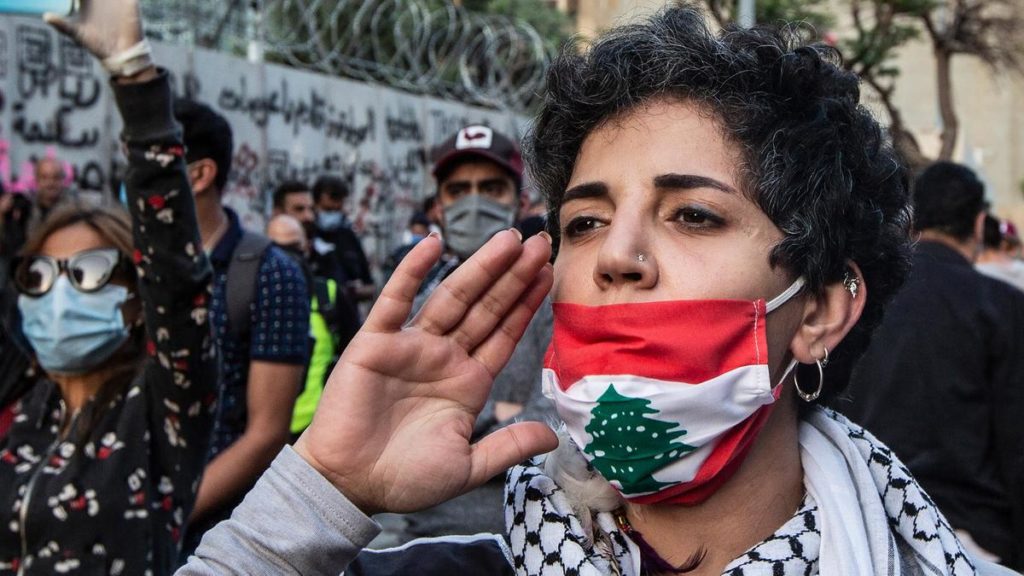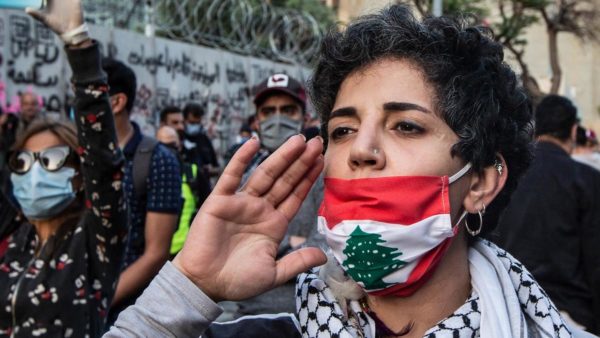Lebanon’s central bank governor Riad Salame has said he will “align” with the government in negotiations with the IMF, appearing to end a months-long stand-off that has stalled crucial talks on a bailout for the crisis-hit country.

Riad Salame, whose 27 years in the job make him one of the world’s longest-serving central bank governors, has been widely criticised for holding up IMF negotiations by disagreeing with the government’s assessment of past banking losses. Lawmakers are also accused of dragging their feet on necessary reforms.
But speaking to the Financial Times, he denied intending to “obstruct the relation [sic] between Lebanon and the IMF”, saying that “for the future, we will align our position on the government position . . . Even if there are losses, we’ll agree.”
The government and the IMF have put the Banque du Liban (BdL)’s losses at around $50bn. In a presentation to parliament, seen by the FT in June, the BdL argued it had a surplus not a loss under its accounting standards. It does not publish profit and loss accounts.
Lebanon’s leaders, including Mr Salame, are under intense international pressure to revive stalled talks with the IMF and impose reforms, as well as appoint a new cabinet, after the catastrophic Beirut port explosion drastically worsened the country’s overlapping economic, financial and monetary crises.
French president Emmanuel Macron has even dangled the threat of sanctions if Beirut’s slow-moving political class fails to make progress. Mr Salame and the central bank are also under scrutiny, given the disagreement over the bank’s losses and his role as an architect of a financial system that was the engine of the now-collapsed economy.
Mr Macron has called for banking transparency, while the previous government launched a forensic audit of the institution.
Nasser Saidi, a former BdL vice-governor and fierce critic of Mr Salame, said without “transparency and disclosure” from the BdL, “negotiations with the IMF will simply be sabotaged”.
The IMF has called for fresh financial and accounting audits of the BdL. But even as he promised to co-operate with government, Mr Salame said he could not promise that BdL would hand over all the information requested by the forensic auditor because he is bound by Lebanon’s powerful banking secrecy laws.
“How can I [guarantee providing the requested information]?” said Mr Salame, insisting the BdL had nothing to hide. “We will give all the information we can give by law . . . let’s see what they ask.”
Lebanon’s government is functionally bankrupt and it faces spiralling inflation, rocketing poverty and unemployment and desperately needs the international support which an IMF programme would unlock. Talks that began in April ran aground over a failure to trim spending and pass a law on capital controls as well as the row over banking losses.
For Lebanon’s poorest, surviving on subsidised bread, it could get worse. The country’s foreign currency assets have dropped by almost a quarter since January to $28.5bn in August.
Mr Salame said the BdL’s foreign currency reserves were so low that it can only provide dollars to subsidise vital imports, such as wheat, until the end of the year.
Prior to this crisis, Mr Salame had been celebrated for keeping Lebanon’s currency stable and its banking system afloat, despite bouts of political turmoil and regional conflict.
With his trademark cigars and unruffled demeanour, he became one of Beirut’s most powerful men. But the once-untouchable Mr Salame now faces blame for the collapse alongside Lebanon’s politicians. His previously cosy relationship with the Lebanese leadership has become antagonistic.
In late April he engaged in a public spat with then-prime minister Hassan Diab, who had ordered Lebanon’s sovereign default against Mr Salame’s wishes.
The default brought an end to the governor’s financial engineering. Under this complex and unorthodox scheme designed to boost foreign exchange reserves, the central bank offered double-digit interest rates to Lebanese banks.
Mr Diab resigned after the Beirut blast amid public fury over state negligence. Prime minister designate Mustapha Adib now has less than a week to form a new government under a timetable laid out by Mr Macron.
Meanwhile Mr Salame must resuscitate moribund banks that have restricted depositors’ access to dollars for months. Lenders must increase their holdings at third-party banks from abroad from “almost near-zero” to some $3.5bn and boost their capital buffers or face a takeover by the BdL, according to a bank circular late last month.
With shareholders reluctant to plough money into their banks, Mr Salame told banks they can “induce” clients to repatriate as much as 30 per cent of the money they squirrelled abroad since July 2017.
The BdL has the power to investigate suspicious transactions, a circular reminded them. Nizar Saghieh, lawyer and director of the Beirut-based Legal Agenda, called the gambit “clear blackmail.” Mr Salame shrugged off the charge, saying that while he cannot legally force the banks to repatriate clients’ money, “sometimes you have to put discipline, so you can restart the system”.
Financial Times


Leave a Reply
You must be logged in to post a comment.